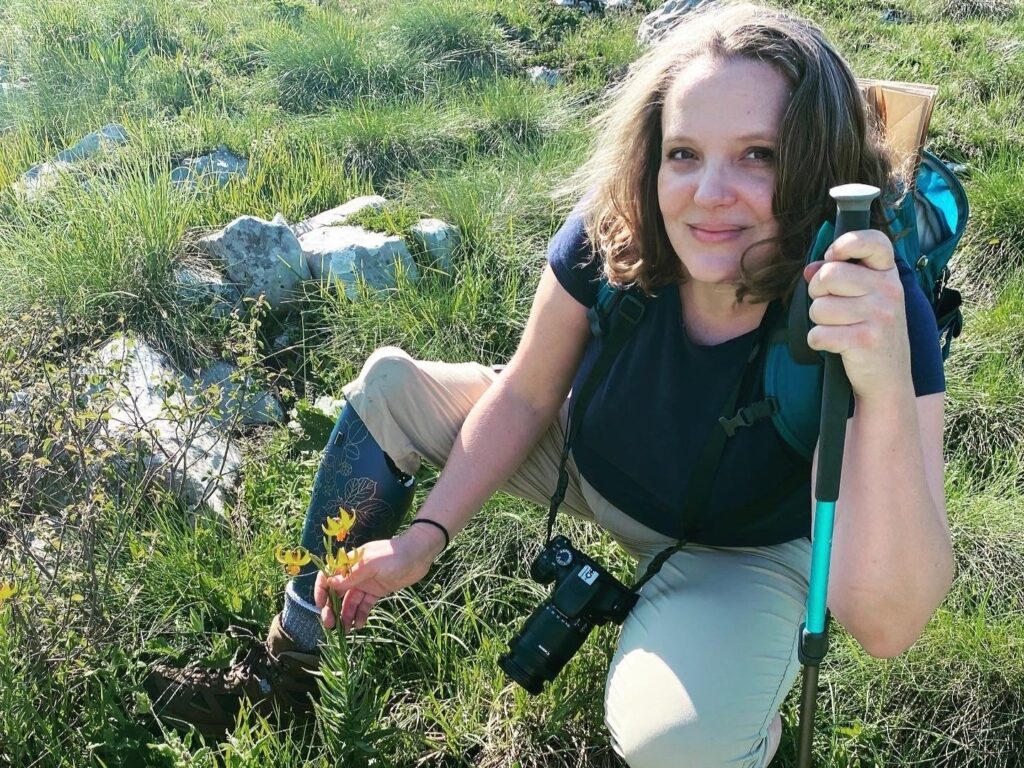
Writer, professor, podcast host, mother, and ethnobotanist Cassandra Quave, Ph.D., is a two-time WINGS Flag Carrier. Cassandra is an endowed Associate Professor of Dermatology and Human Health, leading anti-infective drug discovery research initiatives and teaching courses on medicinal plants, natural products, microbiology and pharmacology at Emory University. Antimicrobial resistant infections are responsible for 700,000 deaths annually, projected to reach 10 million deaths per year by 2050. Innovative approaches to identifying novel chemical compounds that could serve as the next generation of antibiotics are in high demand. Plants have played a fundamental role as the basis of the pharmacopoeia of many different cultures since ancient times. Cassandra’s work, which focuses on the documentation and pharmacological evaluation of plants used in traditional medicine, has taken her on expeditions ranging from remote forests in the Amazon and isolated mountaintops in Albania and Kosovo, to volcanic Mediterranean isles and Florida’s southern swamps.
Most recently, Cassadra carried WINGS Flag #25 for a second time on her expedition to study centenarians in the mountains of Sardinia, a geographic area often referred to as a “Blue Zone” where people reportedly live longer. Cassandra examined the local uses of wild edible and medicinal plants by locals living in “Blue Zone” communities–a cluster of communities identified by Prof. Giovanni Pes in the mountains of Sardinia that have an unusually high concentration of centenarians–documenting and collecting specimens of wild edible and medicinal plants used historically and in present day practice by community members. This pilot project will lay the foundation for future studies into the pharmacological evaluation of these wild ingredients and their impact on centenarians.
In 2022, Cassandra carried WINGS Flag #25 on her expedition to the Bahariya Oasis of Egypt’s Western Desert to collect flora. One of the oldest existing records of the medicinal applications of plants is the Egyptian “Ebers Papyrus,” which dates back to circa 1550 BC. Despite the historic importance of Egyptian flora in the foundation of medicine, many of the species documented in this record remain unstudied by the lens of modern science. Cassandra’s team collected and authenticated herbarium specimens of each species under study and created extracts for chemical characterization and pharmacological evaluation in a panel of antibacterial and toxicity laboratory models.
Cassandra is a Guggenheim Fellow, Fellow of the Explorer’s Club, WINGS Flag Carrier, and recipient of The National Academies Eric and Wendy Schmidt Award for Excellence in Science Communication. Her science memoir, The Plant Hunter: A Scientist’s Quest for Nature’s Next Medicines, was critically acclaimed as one of the best books of 2021 by Kirkus Reviews.
Her research has been profiled in the New York Times Magazine, BBC Science Focus, PBS, NPR, and the National Geographic Channel. She writes a biweekly newsletter on Substack, Nature’s Pharmacy, and has authored pieces for The Conversation, The Wall Street Journal, and The Washington Post.
No results found.